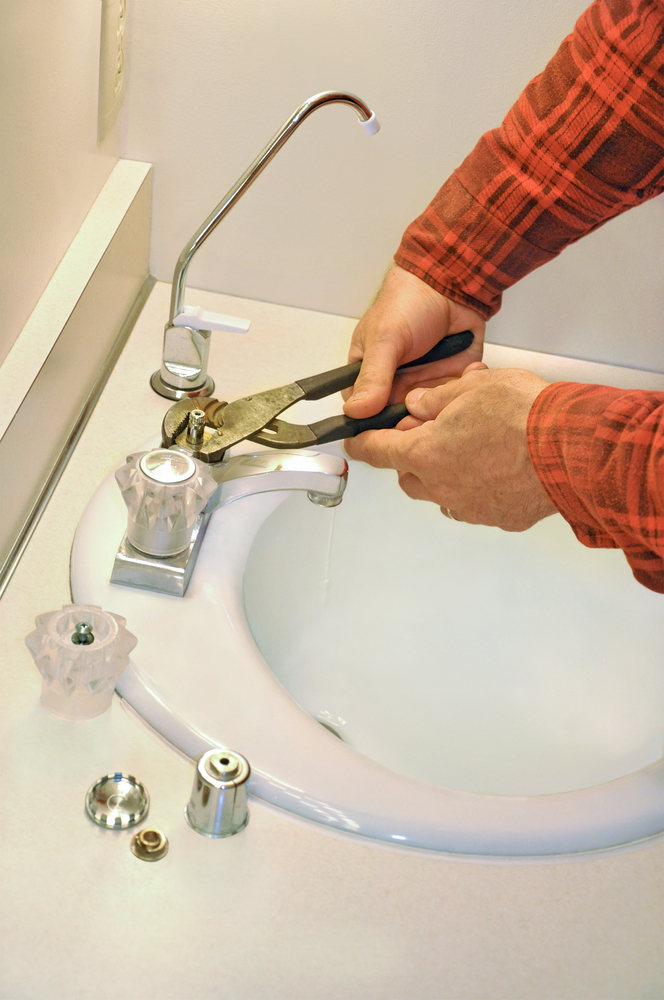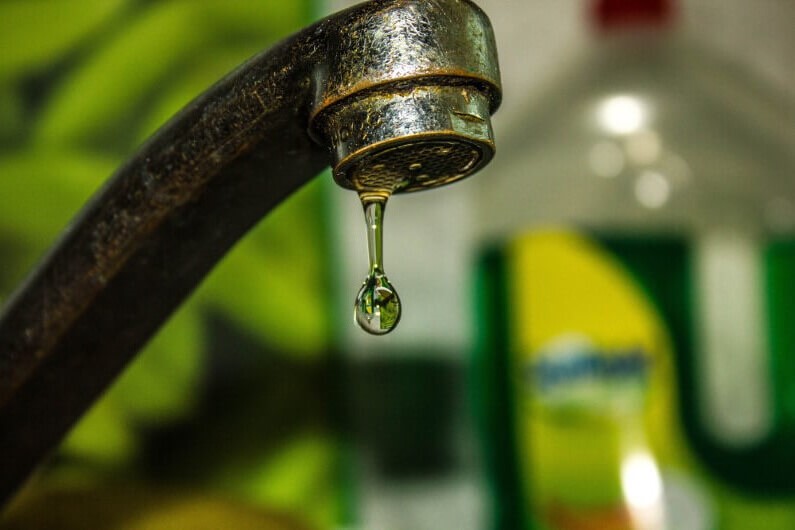Presented here in the next paragraphs you can discover some sensible tips in relation to Water Dripping from Faucet: Why and How to Fix.

Dripping taps might feel like a small inconvenience, yet their influence surpasses just the inconvenience of the sound. From wasting water to sustaining unnecessary financial expenses and health risks, neglecting a trickling faucet can result in different repercussions. In this post, we'll look into why it's essential to address this usual house problem quickly and successfully.
Wastefulness of Water
Environmental Influence
Leaking faucets contribute dramatically to water wastage. According to the Environmental Protection Agency (EPA), a single faucet dripping at one drip per second can squander greater than 3,000 gallons of water each year. This not only pressures water sources however also influences ecological communities and wildlife depending on them.
Financial Costs
Boosted Water Costs
Beyond the environmental influence, dripping faucets can inflate water expenses substantially. The gathered waste in time converts into greater energy expenditures, which can have been prevented with prompt fixings.
Prospective Residential Or Commercial Property Damages
Additionally, extended dripping can bring about damage to fixtures and surface areas surrounding the tap. Water accumulation can trigger staining, corrosion, and also architectural issues if left ignored, causing added repair costs.
Health and wellness Worries
Mold And Mildew and Mildew Growth
The constant existence of wetness from a leaking faucet develops an ideal atmosphere for mold and mildew growth. These fungi not only endanger interior air top quality however also position health risks, specifically for people with breathing conditions or allergies.
Waterborne Diseases
Stagnant water in dripping faucets can become a breeding place for microorganisms and various other microorganisms, raising the danger of waterborne diseases. Impurities such as Legionella germs flourish in stationary water, potentially leading to significant health problems when ingested or inhaled.
Do it yourself vs. Expert Fixing
Benefits and drawbacks of DIY Fixing
While some may attempt to take care of a dripping faucet themselves, do it yourself repair services come with their own set of difficulties. Without correct knowledge and devices, do it yourself efforts can intensify the problem or cause insufficient repairs, extending the issue.
Advantages of Working With a Specialist Plumber
Working with a professional plumber ensures that the underlying root cause of the leaking tap is attended to properly. Plumbers have the proficiency and equipment to diagnose and fix tap problems effectively, saving time and reducing the risk of more damages.
Step-by-Step Guide to Repairing a Dripping Tap
Devices Required
Prior to trying to repair a dripping tap, gather the required devices, including an adjustable wrench, screwdrivers, substitute parts (such as washing machines or cartridges), and plumber's tape.
Typical Faucet Issues and Their Solutions
Determine the type of tap and the specific problem causing the drip. Usual issues include worn-out washers, rusty valve seats, or faulty O-rings. Refer to maker instructions or on the internet tutorials for step-by-step assistance on fixings.
Preventive Measures
Routine Upkeep Tips
To prevent leaking taps, execute routine maintenance such as cleaning up aerators, evaluating for leaks, and changing damaged components without delay. Additionally, consider setting up water-saving gadgets or updating to a lot more effective components.
Value of Prompt Fixes
Resolving trickling taps as quickly as they're seen protects against further water wastefulness and potential damage, ultimately conserving both water and cash over time.
Impact on Residential Or Commercial Property Value
Assumption of Well-Maintained Home
Maintaining a residential or commercial property in good condition, including addressing maintenance concerns like leaking taps, enhances its regarded value and charm among prospective customers or renters.
Impact on Resale Worth
Qualities with well-maintained plumbing components, consisting of faucets, command higher resale worths in the property market. Addressing leaking taps can add to a favorable impression during home examinations and arrangements.
Environmental Responsibility
Individual Contribution to Conservation
Taking responsibility for repairing leaking faucets aligns with broader efforts toward water preservation and ecological sustainability. Every person's actions collectively make a significant impact on preserving precious resources.
Lasting Living Practices
By focusing on timely repair work and adopting water-saving behaviors, people contribute to sustainable living techniques that benefit both existing and future generations.
Final thought
Dealing with a trickling tap goes beyond simple ease; it's a necessary step toward conserving water, minimizing monetary costs, and protecting health and residential property. Whether via DIY repair work or expert support, acting to take care of trickling taps is a little yet impactful method to advertise accountable stewardship of resources and add to a much healthier, a lot more lasting future.
How to Fix a Leaky Faucet: Step-by-Step Repair Guide
A leaky faucet may seem like a simple annoyance, but if it's not fixed promptly, that leak could cost hundreds to potentially thousands. From water damage to mold, mildew, and high water bills, even a tiny leak can be catastrophic if left unattended. Damage like this can even affect the overall value of your home, so it's important to take the right approach for leaky faucet repair. You may need the help of a plumber in some cases, but we've got a few tips you can try on how to fix a leaky faucet before calling the pros.
Four Faucet Types
When you're learning how to fix a leaky faucet, the first step is knowing what kind of faucet you're working with! There are four common types.
Cartridge Faucets
Cartridge faucets come in one- or two-handled varieties. In one-handled cartridge faucets, hot and cold water combines in a single cartridge. In the two-handled versions, hot and cold water are controlled separately and mixed in the faucet.
Ball Faucets
Ball faucets have a single lever you push up and down to adjust the pressure and rotate to change the temperature. A slotted metal ball controls the amount of water allowed into the spout.
Compression Washer Faucets
They're the oldest type of faucet, but they're still used in many homes — especially older ones. Compression faucets have two separate handles that, when turned, raise or lower the washer that seals a water valve. This valve stops water from flowing through the faucet when it is turned off.
Disc Faucets
Disc faucets rarely need to be repaired due to their maintenance-free design. The water flow is controlled by two discs — the upper one raises and lowers against a fixed lower disc, creating a watertight seal. If your disc faucet starts leaking, you may need to replace the seals or clean residue buildup from the inlets.
Fixing a Leaky Faucet
Step 1: Turn Off the Water
Whether you're learning how to fix a leaky bathtub faucet or how to fix a leaky kitchen faucet, always turn off the water supply to your working area when you're fixing a leak. The last thing you want is a flood added to your list of things to fix.
Look for the shutoff valves below your sink or around the tub and turn them clockwise to stop the water flow. If your faucet doesn't have shutoff valves, you may need to turn off the water for the whole house. Check to make sure it's off by turning the faucet on. If nothing comes out, you're ready to start the repair.
Step 2: Take Apart the Faucet
How you disassemble your faucet depends on the type of fixture you have. You can use a flathead screwdriver to remove the caps on top of the handle or handles for cartridge and compression faucets. Inside, you should see handle screws. Unscrew these with a screwdriver to remove the handle.
Disc- and ball-style faucets will typically have an inlet screw near the handle, and removing that will reveal the interior of the faucet.
Detach the Valve Stem
For cartridge- and compression-style faucets, you'll see the inner valve stem or cartridge once you remove the faucet handles. If you have a compression faucet, unscrew the brass valve stem. If you have a cartridge faucet, pull out the cartridge. If your cartridge has been in place for a while, it may require some tools or extra force to remove it due to mineral deposits.
Examine and Replace Parts
Once you've removed the parts, check them out to confirm what needs to be replaced. You may see corroded rubber washers, O-rings, stems, or cartridges. On a ball-style faucet, check the seats and springs for damage.
If you need to repair a leaky disc faucet, check the inlet and seals on the lower disc.
Once you determine what parts must be replaced, visit your local hardware store. Bring the damaged parts with you to ensure you can purchase the correct components to replace them.
Clean Valves and Faucet Cavity
If you've removed a stem or cartridge, you may notice mineral buildup in the faucet's threads. Use white vinegar to clean the valve seat by soaking it for a few minutes, then scrub it away with a soft toothbrush and rinse with warm water. You can also clean the interior of the faucet in the same way.
Reassemble the Faucet
Once your faucet is cleaned and the required parts have been replaced, it's time to reassemble it. Put the pieces back together and slowly turn the water supply back on. Doing this slowly is crucial because too much initial water pressure can damage the new hardware you've just installed.
https://homewarranty.firstam.com/blog/how-to-fix-leaky-faucet

I discovered that piece of writing on Why Is It Important To Fix Your Leaking Tap/Faucet? when perusing the search engines. In case you enjoyed our blog entry please make sure you remember to pass it around. I value your readership.